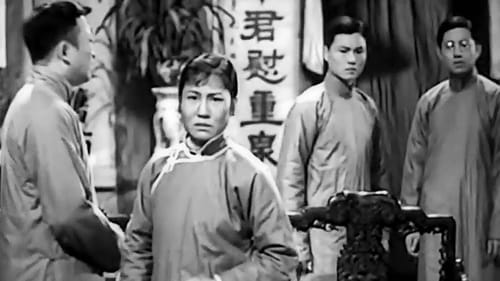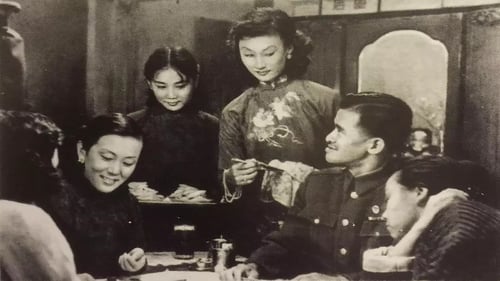Wei Heling
Birth : 1907-01-13, Tianjin, China
Death : 1979-10-02

Yihan Bo

Xingen Chang

Lu Ban, the father of carpentry of China, lived in the Warring States Period more than two thousand years ago. During his travel through the land, he has solved many architectural problems and befriends a young builder. Under the guidance of Lu, the young man slowly turns from an arrogant and imprudent builder into a responsible craftsman able to take on a daunting task assigned by the king.

Eldest Master Gao
Based on the famous novel of the same name by well-known author Ba Jin, this movie traces the decline of a large, wealthy family in the early part of the twentieth century. The story focuses on three brothers and how they respond to the expectation that they will each marry women whom their grandfather has selected for them. The lure of family money on the one hand and modern individualism on the other plays out differently among the young men. Critics consider this movie an indictment against feudal ideas.

Laoliu He
In a mountain hamlet in eastern China, a poor woman faces trial after trial. Sold into marriage as a child, she is left a young widow and enslaved by her mother-in-law, who sells her to a poor peasant. Her second marriage turns out to be happy until fate takes away her husband and son. Now seen as a bearer of bad luck, she becomes a social outcast.

宋老定
Set in the period of land reform movement, a poor peasant Zhang gets a fertile land. But he doesn't work seriously on it, then loses money and runs into debt. Song wants to buy Zhang's land but his son thinks that they should help Zhang.

Before the liberation of Shanghai, Nationalist agent Zhang Rong is ordered to blend in with the captive workers of the Baotong Mill and wait for a chance to act. After the liberation, he returns to the factory, disguising himself as a far-left agitator and causing friction between the workers and management.

Fifty years of modern Chinese history (1900-1950), including wars, revolutions and corrupt politics, as seen through the life and times of a simple Beijing policeman and his family.

Mr. Kong
At a Shanghai apartment, Mr Hou, a Nationalist official, gets ready to move to Taiwan upon the imminent defeat of the KMT during the Civil War. Mrs Hou gives an ultimatum to the rest of the tenants to move out on behalf of her husband, who is the "owner" of the flat and who is now planning to sell it. From the conversations with the rest, we find out that Hou has been a Hanjian during the Sino-Japanese War and that he has since taken over the apartment by force from the old landlord, Mr Kong. The tenants, including Mr Kong, Mrs Xiao, Little Broadcast (alias Mr Xiao, played by Zhao Dan) and a schoolteacher, Mr Hua, and his wife, initially plan to band together, but circumstances force them to find other ways out. Mr Hua tries to find a place to stay at the KMT-sponsored school he is teaching in. Little Broadcast and Mrs Xiao invest in black market gold. As the situation escalates, Mr Hua gets arrested by KMT agents and his young daughter falls desperately ill.

黄志刚

Diaochan (aka Diau Charn and Sable Cicada), one of the Four Beauties of China, is supposed to be so stunningly lovely that the moon was shamed to hide behind clouds. Despite being the only Beauty among the four who is not a real historical figure but one conjured by storytelling imagination and embellished by public fascination, her story was nonetheless incorporated by author Luo Guangzhong into his popular and influential novel Romance of the Three Kingdoms. Her tale is one of Machiavellian intrigue, in which she schemes with her godfather Wang Yun to restore moral order to the land, sowing discord between the corrupt Minister Dong Zhuo and his adopted son Lu Bu, a man of martial and military prowess.

刘山

Lao Wang (Newspaper Seller)
In old Shanghai, two sisters, a prostitute and a singer, try to escape from the local scoundrels with the help of a trumpet player and a newspaper seller.

乐以琴







